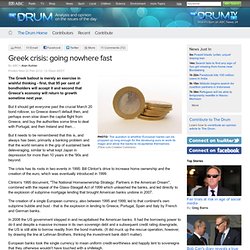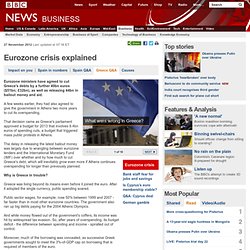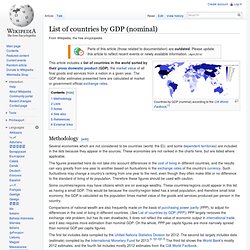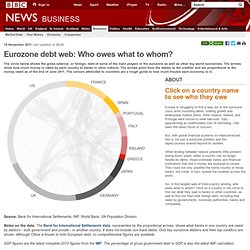

Greek crisis: going nowhere fast - The Drum. Posted Wed 22 Feb 2012, 12:35pm AEDT The Greek bailout is merely an exercise in wishful thinking - first, that 95 per cent of bondholders will accept it and second that Greece's economy will return to growth sometime next year.

But it should get everyone past the crucial March 20 bond rollover, so Greece doesn't default then, and perhaps even slow down the capital flight from Greece, and buy the authorities some time to deal with Portugal, and then Ireland and then… But it needs to be remembered that this is, and always has been, primarily a banking problem and that the world remains in the grip of sustained bank deleveraging, similar to what kept Japan in depression for more than 10 years in the '90s and beyond. Hairshirts and haircuts: another Greek 'agreement' - The Drum Opinion - The story of 'hairshirts' (the Greek economic plan) and 'haircuts' (the writedown of Greek debt or PSI) are little more a side show in the broader European debt crisis. (Australian Br. Find More Stories Hairshirts and haircuts: another Greek 'agreement' Satyajit Das The Greek prime minister spoke of a choice between "austerity" and "disorder".
He got both, as the Greek parliament based the European Union ("EU") agreed to severe budget cuts and outside rioters protested the plan. In great dramas, sub-plots support the main story. With Greece increasingly doomed, the real significance of the negotiations is that they provide a template for future European sovereign restructurings. In July 2011, the Institute of International Finance ("IIF"), a lobby group representing major banks and investors, proposed a complex plan entailing investors suffering a loss of around 21 per cent on the value of their Greek bond holdings. Greece has around €350 billion in debt including €70 billion in bailout loans and around €80 billion in bonds held by the European Central Bank ("ECB").
Following protracted negotiations, the Greek government has agreed on a new Greek austerity package. Email x. Q&A: Greek debt crisis. 27 November 2012Last updated at 07:16 ET Continue reading the main story What went wrong in Greece?

Greece's economic reforms, which led to it abandoning the drachma as its currency in favour of the euro in 2002, made it easier for the country to borrow money. Greece went on a big, debt-funded spending spree, including paying for high-profile projects such as the 2004 Athens Olympics, which went well over its budget. The country was hit by the downturn, which meant it had to spend more on benefits and received less in taxes.
There were also doubts about the accuracy of its economic statistics. Greece's economic problems meant lenders started charging higher interest rates to lend it money. There have been demonstrations against the government's austerity measures to deal with its debt, such as cuts to public sector pay and pensions, reduced benefits and increased taxes. In 2010, the EU, IMF and ECB agreed a bailout worth 110bn euros (£92bn; $145bn) for Greece. The Truth About the Economy. List of countries by GDP (nominal) This article includes a list of countries in the world sorted by their gross domestic product (GDP), the market value of all final goods and services from a nation in a given year.

The GDP dollar estimates presented here are calculated at market or government official exchange rates. Several economies which are not considered to be countries (world, the EU, and some dependent territories) are included in the lists because they appear in the sources. OECD iLibrary: Organisation for Economic Co-operation and Development. CHART OF THE DAY: This Will Be The World's Richest Country In 2050. Goldman has a new report out on The BRICs countries after 10 years, and how global markets will continue to evolve.

Remember, the BRICs are Brazil, Russia, India, and China -- the four countries identified 10 years ago by Goldman's Jim O'Neill as being the global growth-drivers of the next generation. This new report discusses various themes, including the emergence of non-BRIC emerging markets, as well as a general flattening of income equality over the next several years. Goldman also makes its prediction for what the richest economies will be in the year 2050.
The good news for the U.S.: The U.S. will remain top dog on a per-capita-GDP basis (this list does exclude some tiny countries, like the Mideast petro-kingdoms, which might actually be higher). According to the report, China will be far and away the world's biggest economy, but on a per-capita-GDP basis, it still won't even be as rich as Mexico. Eurozone debt web: Who owes what to whom? The circle below shows the gross external, or foreign, debt of some of the main players in the eurozone as well as other big world economies.

The arrows show how much money is owed by each country to banks in other nations. The arrows point from the debtor to the creditor and are proportional to the money owed as of the end of June 2011. The colours attributed to countries are a rough guide to how much trouble each economy is in. Click on a country name to see who they owe Europe is struggling to find a way out of the eurozone crisis amid mounting debts, stalling growth and widespread market jitters.
But, with global financial systems so interconnected, this is not just a eurozone problem and the repercussions extend beyond its borders. While lending between nations presents little problem during boom years, when a country can no longer handle its debts, those overseas banks and financial institutions that lent it money are exposed to losses. GDP: €1.8 tn Foreign debt: €4.2 tn.